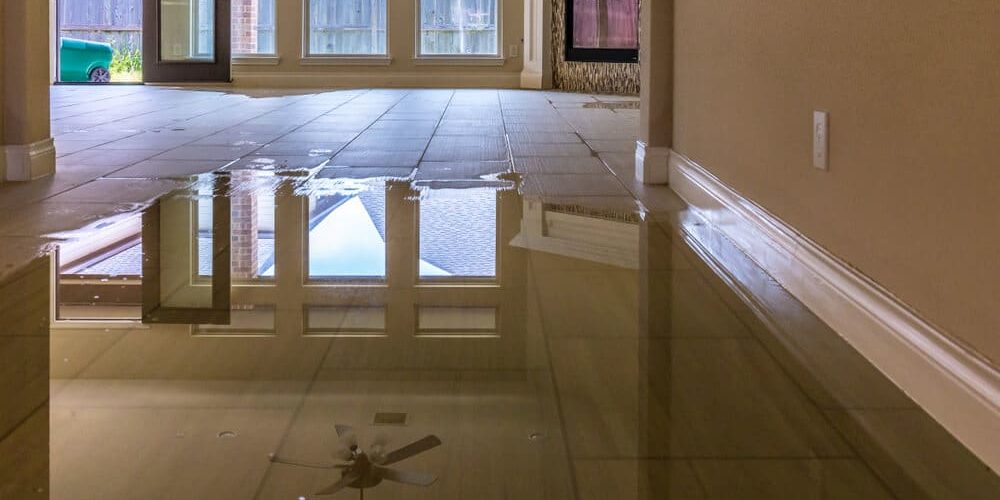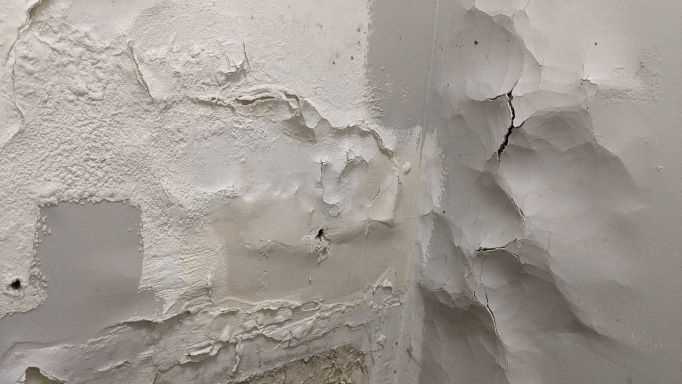Trusted Water Damage Cleanup Services to Restore Your Home’s Safety and Comfort
Trusted Water Damage Cleanup Services to Restore Your Home’s Safety and Comfort
Blog Article
The Process of Water Damages Cleanup: Guaranteeing Your Home Is Recovered Successfully
Water damage can be a daunting challenge for property owners, demanding a thorough and structured cleanup process to bring back safety and capability. A detailed analysis is vital to determine the extent of the damages and figure out the proper removal procedures. Following this, reliable water extraction techniques play a critical function in reducing more damage. The subtleties of drying, disinfecting, and eventual remediation are similarly important and typically neglected. Comprehending these phases can make a substantial difference in the end result of your home's repair, motivating a closer take a look at what each action requires.
Evaluating the Damage
Upon finding water damages, the very first step is to thoroughly assess the level of the effect. This first assessment is critical, as it aids establish the required actions for effective cleanup and remediation. Begin by inspecting the impacted locations, including walls, ceilings, floorings, and individual items, to identify the resource of the water breach, whether from flooding, leaks, or condensation.
Documenting the damages is essential for both insurance coverage claims and planning remediation efforts - damage restoration services. Use pictures and created notes to catch the severity of the damages, noting any type of affected structural components and products. Pay unique focus to locations that might not be promptly visible, such as behind wall surfaces and under carpets, as hidden wetness can bring about further complications, including mold and mildew development
Additionally, analyze the timeline of the water direct exposure. The longer the materials remain wet, the higher the potential for damages. Understanding the period of direct exposure will certainly notify the urgency of remediation initiatives. Ultimately, a thorough assessment lays the foundation for a successful water damage clean-up procedure, guaranteeing that all impacted locations are attended to effectively and thoroughly.
Water Extraction Techniques

Experts typically utilize submersible pumps for larger quantities of water, which can swiftly ease flooding in basements or various other impacted areas. For smaller sized amounts, wet/dry vacuum cleaners are often utilized to remove residual dampness from rugs and hard surfaces. In addition, using mobile extractors permits targeted elimination in restricted rooms or locations with fragile products.
In instances of contaminated water, such as sewer or floodwater, advanced extraction methods might include using biohazard equipment to guarantee security and compliance with health and wellness policies. High-powered extraction tools are important in minimizing water retention in structural products, which can cause mold and mildew growth and architectural deterioration if not resolved quickly.
Eventually, the efficiency of water extraction strategies plays a crucial function in the general success of the water damages clean-up process, preparing for subsequent reconstruction efforts.
Drying and Dehumidification
As soon as standing water has actually been effectively drawn out, the next critical phase in the water damages clean-up procedure is drying and dehumidification. This step is necessary to stop further damage and mold and mildew development, which can happen within 24 to two days in damp environments.
To attain effective drying out, specific equipment such as industrial-grade air moving companies and dehumidifiers is used. Air movers circulate air across wet surfaces, enhancing dissipation prices, while dehumidifiers minimize humidity degrees in the air, promoting a helpful environment for drying. The combination of these devices makes sure that moisture is drawn out from walls, furnishings, and floorings, enabling them to completely dry extensively.
It is essential to monitor the drying procedure carefully. Specialists usually utilize wetness meters to examine the moisture web content in different materials, making certain that all influenced areas reach acceptable dryness levels. This meticulous approach aids to stop concealed moisture pockets that might bring about structural damage or harmful mold and mildew growth.

Cleansing and Sanitizing
After the drying out and dehumidification phase is complete, the next essential action in water damages cleaning is cleansing and sterilizing the impacted locations. This process is vital to avoid the development of mold, germs, and other virus that grow in wet settings.
The cleansing stage normally includes removing any debris, dirt, and impurities from surfaces using specialized cleaning up representatives. For hard surface areas, a mix of soap and water or industrial cleaning items is usually find out here utilized. Soft materials, such as upholstery and carpetings, might call for more substantial cleansing methods, consisting of heavy steam cleansing or deep extraction techniques, to ensure comprehensive sanitation.

Disinfecting adheres to cleansing, using EPA-approved disinfectants to remove unsafe microorganisms. This action is necessary, specifically in locations that may have entered call with floodwaters or sewage, as these resources can posture serious wellness threats.
Furthermore, it is vital to address any kind of remaining odors, which may call for making use of smell neutralizers or sophisticated strategies like ozone treatment. Correct cleansing and sterilizing not only recover the safety and security and health of your home however additionally lay the groundwork for effective repair and repair services in subsequent stages of the water damages cleaning procedure.
Restoration and Repair Services

As soon as the assessment is full, reconstruction initiatives can start. This typically entails repairing or changing broken products, making certain that all job follows neighborhood building regulations and standards. As an example, if drywall has been endangered, it will certainly need to be eliminated and replaced with new product. Additionally, flooring may require comparable interest, relying on the degree of water exposure.
It is vital to engage knowledgeable restoration professionals during this procedure, as they possess the expertise to manage intricate repairs properly. They can aid minimize potential future concerns, such as mold growth or structural instability, thus making certain a secure and habitable living setting. Ultimately, efficient repair and fixings bring back the home's why not check here stability and improve its total worth.
Final Thought
Finally, the procedure of water damages clean-up is crucial for restoring a home to its pre-damage condition. Each phase, from analyzing the damages to carrying out effective water extraction strategies, followed by complete drying out, disinfecting, and essential repair work, plays a vital role in guaranteeing safety and conformity with structure criteria. Efficient execution of these actions not just minimizes immediate damage but also improves the lasting integrity and worth of the home.
Water damages can be a difficult challenge for home owners, requiring a precise and organized cleaning process to restore security and capability. Inevitably, a thorough analysis lays the foundation for a successful water damages clean-up process, guaranteeing that all influenced areas are attended to efficiently and extensively.
Efficient water extraction methods are essential in mitigating damage and avoiding further complications adhering to a water intrusion occasion.In final thought, the process of water damage clean-up is important for restoring a home to its pre-damage condition. Each stage, from examining the damages to executing reliable water extraction strategies, adhered to by comprehensive drying, sanitizing, and needed repair services, plays a vital role in ensuring safety and security and conformity with structure criteria.
Report this page